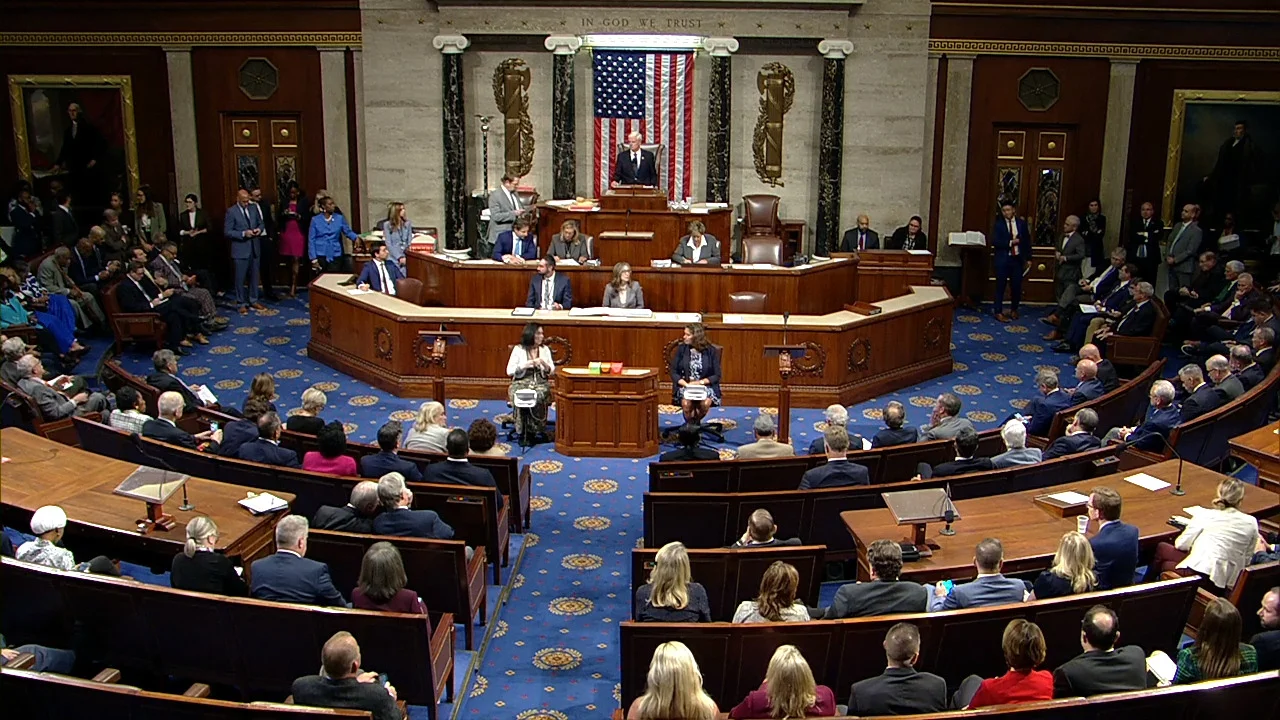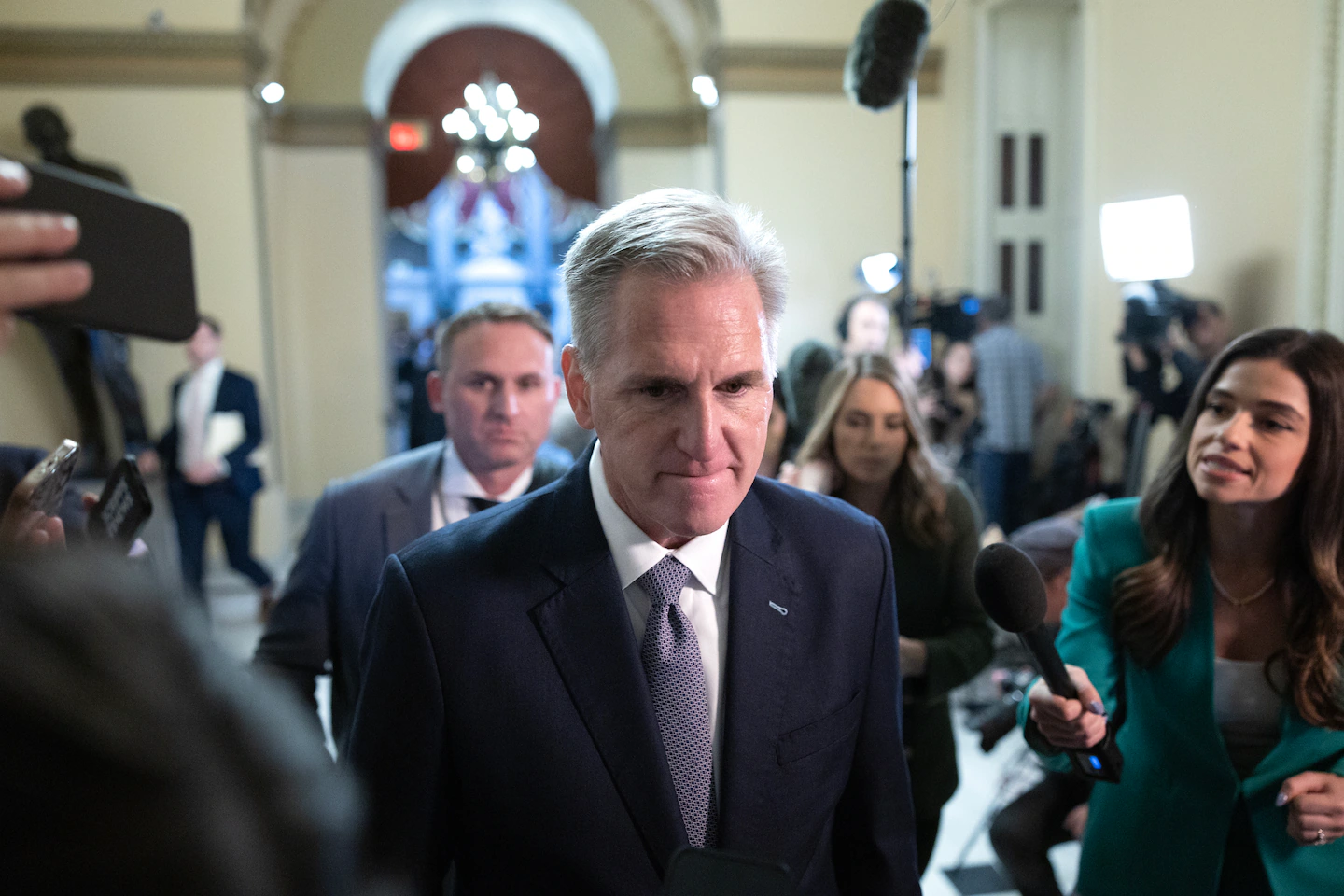As the dust settles following the historic removal of Speaker Kevin McCarthy, the House of Representatives finds itself in disarray. The ramifications of this leadership crisis extend far beyond political turmoil. At the heart of the matter lies a looming government funding crisis, with the odds of a November shutdown growing ever higher.

On October 3, 2023, the United States House of Representatives voted to remove speaker of the House Kevin McCarthy of California through a motion to vacate filed by Representative Matt Gaetz of Florida, a member of McCarthy's Republican Party.
Amid the power struggle within House Republicans over Speaker McCarthy’s successor, the functioning of the House itself has been virtually paralyzed. This predicament comes at a critical juncture, as Congress is tasked with funding the government by mid-November.
In the wake of Speaker McCarthy’s ouster, House Republicans made a somewhat unconventional move: they adjourned for a week. This hiatus was intended to allow tempers to cool and tensions to ease. When they reconvene, the House will confront a crucial task – electing a new speaker to lead the lower chamber.
Rep. Patrick McHenry, a close ally of Speaker McCarthy, serves as acting speaker, officially titled “speaker pro tempore.” However, the extent of his authority still needs to be clarified. McHenry’s primary responsibility will be overseeing the forthcoming speaker election. Yet, amid this transition and leadership vacuum, the House faces a significant hurdle – its inability to pass essential legislation, including key measures aimed at averting a government shutdown.
The initial plan devised by House Republicans was to pass the 12 appropriation bills necessary for long-term government funding during October. This strategy had gained momentum following their successful avoidance of a shutdown the previous weekend. In the aftermath of his removal, Speaker McCarthy expressed his efforts in initiating informal discussions with Senate leaders to prevent a shutdown. However, his abrupt removal has thrown these plans into disarray, as lawmakers have returned to their districts, pondering who should serve as the next speaker.

Speaker McCarthy voiced concerns regarding the revised timeline, acknowledging the disruption to their well-laid plans.
House Republicans are now prioritizing the search for a new leader. Their stance is clear: “We’re getting this one thing done first,” stated Rep. Dan Crenshaw of Texas. He emphasized their intention to have a speaker in place by the following week, allowing the appropriations process to resume.
Rep. Matt Gaetz of Florida, a conservative hardliner who spearheaded Speaker McCarthy’s removal, defended his actions in light of the looming Nov. 17 funding deadline. Gaetz argued that the House was already paralyzed, as Congress had opted for its August recess instead of focusing on the appropriations process. The concerns about a government shutdown following Speaker McCarthy’s removal were dismissed by Rep. Nancy Mace of South Carolina, another of the eight Republicans who voted to remove McCarthy.
Mace contended that the government had made minimal progress in averting a shutdown under Speaker McCarthy’s leadership, citing several incomplete appropriation bills. She hoped a new speaker would be elected swiftly, allowing them to resume their legislative work without delay.
The candidates vying for the speakership have alluded to the time constraints faced by Congress, exacerbated by the leadership vacuum. House Majority Leader Steve Scalise of Louisiana, a candidate for speaker, stressed the need to maintain momentum. He outlined an ambitious schedule to complete floor consideration of all 12 appropriations bills, enabling them to enter Senate negotiations from a position of strength. Scalise emphasized the urgency of this goal and the imperative of staying on time.
The House is essentially paralyzed until they elect someone to replace McCarthy. https://t.co/AOCSsjDRwk
— The Washington Times (@WashTimes) October 6, 2023
Rep. Jim Jordan of Ohio, chairman of the House Judiciary Committee and another candidate for speaker, echoed these sentiments. He acknowledged that at some point, they would have to address the appropriations process to ensure the government’s continued functioning.
Rep. Kevin Hern of Oklahoma, chair of the Republican Study Committee, the largest group of House Republicans, underscored his commitment to pushing through the 12 appropriation bills. According to Hern, if House Republicans achieved this feat, the responsibility for government funding would shift to the Senate and the White House. In this scenario, any potential government shutdown would be attributed to them.
The turmoil within the House has ignited anger among GOP leadership allies and moderate lawmakers. Some Republican members have already begun laying blame for a potential November government shutdown squarely at the feet of the eight members who voted to oust Speaker McCarthy.
Rep. Garret Graves of Louisiana, one of Speaker McCarthy’s closest allies, singled out Matt Gaetz as the insurgency’s leader against the former speaker. Graves expressed his belief that if a shutdown were to occur, it would be entirely attributable to Gaetz and the seven others who instigated this turmoil. He criticized Gaetz for his penchant for creating chaos to garner attention, emphasizing that he needed to ponder his decisions’ repercussions thoroughly.
In the wake of these developments, the House is in disarray, raising the specter of a government funding crisis in November. The blame game has already begun within the GOP, with the risk of a government shutdown looming large amid the leadership chaos.




